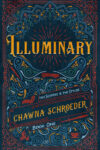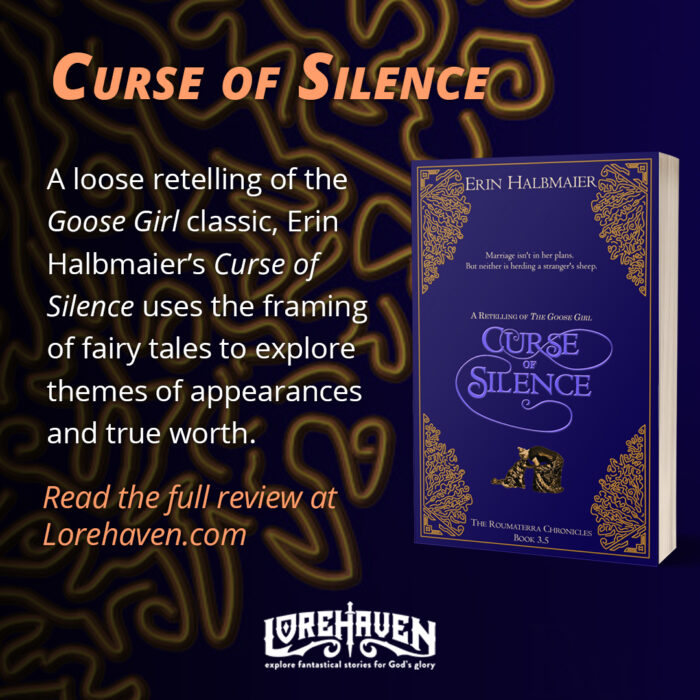Keeping It Real
Quality fiction keeps it real. That is, readers don’t want to be jarred out of a story by a plot that doesn’t make sense, character reactions that wouldn’t happen in the real world, or defying the laws of physics without cause.
One of the issues in keeping character interactions real is sex.
Last week one of my main points got lost in the good and needed discussion on the Biblical understanding of sex and marriage: whatever one’s view on the topic is, do we as readers find that represented in Christian fiction, in our case, speculative Christian fiction?
Too often, I suspect, the subject of sex and marriage is avoided rather than fleshed out in most Christian fiction. This is not an effective counter to secular values on the subject regularly plastered in mainstream speculative fiction.
It reflects a head-in-the-sand approach instead of a counter approach. A true counter approach would be showing a positive Christian marriage and relationship reflecting Biblical morals in contrast to the secular.
There are five reasons I think we don’t tend get Christian speculative fiction displaying a positive Biblical model when it comes to sex and marriage.
- Publishers and bookstores fear broaching the subject will result in condemnation and sluggish sales, so why risk it?
- Authors know including anything about the subject will make it a difficult sale to a publisher for the above reason.
- Authors feel unsure where to draw the line between being real and titillating, so they tend to not even go there.
- Authors fear being the cause of their “brother’s” stumbling.
- Too many still feel sex is not to be discussed, and dirty when it is brought up. Proper Christians won’t go there.
The result? The subject is surrendered to the secularist to display their values.
They are allowed to define the morality. Christians end up either reacting against it and/or adopting it as part of their “Christian worldview.” Anyone wanting to present a positive example of that relationship gets the “guilty by association” treatment.
Is this a recent problem? Hardly. Different circumstances back in the fourth century, same song and dance as noted by John Chrysostom:
And how become they one flesh? As if thou shouldest take away the purest part of gold, and mingle it with other gold; so in truth here also the woman as it were receiving the richest part fused by pleasure, nourisheth it and cherisheth it, and withal contributing her own share, restoreth it back a Man. And the child is a sort of bridge, so that the three become one flesh, the child connecting, on either side, each to other. . . . Therefore to wit He said with accuracy of expression, not “they shall be one flesh” but joined together “into one flesh” (Genesis 2:2,Sept.), namely, that of the child.
What then? when there is no child, will they not be two? Nay, for their coming together hath this effect, it diffuses and commingles the bodies of both. And as one who hath cast ointment into oil, hath made the whole one; so in truth is it also here.
I know that many are ashamed at what is said, and the cause of this is what I spoke of, your own lasciviousness, and unchasteness. The fact of marriages being thus performed, thus depraved, hath gained the thing an ill name: for “marriage is honorable, and the bed undefiled.” (Hebrews 13:4.)
Why art thou ashamed of the honorable, why blushest thou at the undefiled? This is for heretics, this is for such as introduce harlots thither.
(St. John Chrysostom, “Homilies on Colossians,” Homily 12, vs. 18)
Two questions.
One, does anyone know of good Christian speculative fiction that shows the positive Christian relationship between sex and marriage?
Two, should readers support such stories to encourage publishers and bookstores to buy and print more of these types of stories?






































The only Christian spec fic book I’ve seen to even address sex was David N. Aldermann’s Black Earth series. One of the characters is very unhealthy in her sexual attitudes, and it winds up enslaving her and causing a lot of problems. It was a good treatment of it, because it was clear she wasn’t just a stereotypical hussy as opposed to being screwed up and using the right things for the wrong reasons. The series is a little rough, but I don’t know any other Christian spec fic that covers sex at all.
Actually, I just haven’t seen terribly well-fleshed marriages in Christian fic. Or much in secular fic, either. More attention on relationships is on the romancey beginnings, not on the comparatively uneventful (or just less angsty) fulfillment, which is another reason romance just doesn’t have the legs to carry a long story. Wash and Zoe from Firefly might have become something more if the series had lasted; the storytelling was building something there. (Obligatory wails of anguish about Firefly.)
But it would probably help if we weren’t so afraid of unleashing the Pearl Clutching Brigade if at least married characters were allowed to talk about sex as if it were an enjoyable, good thing in of itself and not just because babies redeem it, like little squishy Jesuses.
Yeah, you really need to meet better and more-Biblical Christians. I have seen this view out and about and on the fringes — yet they are big fringes — yet I have no idea what you mean by “little squishy Jesuses.” 😛 Otherwise, I agree with this remark, notleia! My only addition would be that sex is recovered and made “very good” not by babies, or by simply “talking about it” (in fiction or in reality) and thus getting the whole thing out in the open. Instead, sex is redeemed and becomes “very good” by bringing our views of sex in line with the views of Jesus. And that starts not by simply doing more and trying to behave better, but by seriously pondering and responding to Jesus Christ’s question to a follower:
Points down at Mishtical And I didn’t have to link to anything this time. Handy.
The part about little squishy Jesuses is based on something I’ve noticed in literature, particularly Victorian literature, specifically George MacDonald’s work. Part of the woman’s redemption cycle, after submission to a man/male authority [insert feminist frothing rage], is child-bearing, as if she’s only redeemed by popping out some babies, which makes those babies seem as though they have the redemptive power of Jesus. Ergo, little squishy Jesuses, because babies are kinda squishy-looking. I can assure you it was clever in my head.
What do you think sex is for?
It’s for making babies. Lots of them, by the design God gave us of our desires for one another. What is all this about sex being a good thing outside of the babies that “redeem” it? Is our enjoyment of good food “redeemed” by the fact that it nourishes and strengthens our bodies? Or should we start throwing it up so that we can enjoy good food more often without having to gain weight or get sick? This is pandering to the modern hedonistic view of sex.
Use sex as God made it, for His glory, for raising children for Him. Of course it is pleasurable and unifies the spouses emotionally… and this is a good thing. Just as food eaten is enjoyable and strengthens our bonds of family and friendship when we prepare meals for one another or eat together. But if we were to remove from the act of eating its natural end, nourishing and building up the body, so that we could eat more than was “needed”, we would cause ourselves great harm.
But this is rampant in our society anyway, so why not also with sex? This is harmful. This is destructive. We can admit it about our relationship to food, so why not our relationship to sex? In the 1930s the Anglican church was the first one in America to start to allow contraception, and the secular Washington Post fretted that this would lead to the breakdown of traditional sexual morality. Hmm.. well look what happened?
In fiction, I think, the best thing to do is show examples, role models, of healthy marriages and ways of relating. To show, even in writing or not too explicitly, something of a healthy sex life between married people, already violates the marriage bed. Would a real healthy married couple talk about their intimacy with outsiders? Is not the reader an outsider? I think it is a good example for us to set as an example not discussing things that are meant to be intimate between husband and wife. Nobody needs to be “taught” how to be sexual when the time comes between husband and wife. It’s instinctual, it’s natural. It happens pretty much on its own. It doesn’t need education.
People DO need to be taught how to be humble, how to be holy, how to relate with kindness, love, and responsibility towards one another. Showcase these in fictional relationships. Put the instinctual things of life in their proper place in the relationships, and teach the things that need teaching. Sex doesn’t need to be taught, but the other character qualities and expectations that keep it in its proper place DO need to be taught.
[Biblical citation required.] 😉
And I saw this just as I was writing a comment (above) to notleia agreeing with her that this view is, alas, prevalant among many Christians. 🙂
Yet thanks for your comment, Mishtical! (And I love your web handle.) I agree that sex is good in part because it helps us reflect God’s creative work, in the “creation” of new human beings. But Scripture is clear, not just in Song of Solomon, that Godly-“hedonistic” romantic love, including physical intimacy, itself glorifies Him just as much. Otherwise, shall we say that the elderly couple, the infertile couple, or the physically disabled couple cannot glorify God as much? Or that the family who has decided to have only two children is not glorifying Him as much as the family with 11 children? I simply don’t see where Scripture says these things.
Guys, I’m not even going to touch this one with a ten-foot pole. There’s just too much bullcrap, and I think it might end up in swearwords and/or a porpskillion links to feminist Christian blogs if I tried. I’ll just hope that everybody finds this at least half as much saddening, disturbing, irritating, facepalming, and “this is why we can’t have nice things”-ing as I do.
Once again, notleia, I can empathize with your frustration! (Note my response to our new friend as well — and yes, new friend; let us follow the advice of Yoda from Star Wars and not give ourselves to the “Dark Side” even supposedly for a righteous cause.) Such views for you brings back a whole bunch of history, don’t they? Once again I must stress that these views are not Biblical (though well-intentioned), and it is not through personal outrage but by appealing to Scripture that any Christian can show them to be flawed — and/or perhaps based on reaction against perceived “hedonism” rather than on proactive desires to glorify God in all things. As a good “Christian Hedonist” (term from author/pastor John Piper), I’m not as worried about whether someone else used a Thing to sin, but whether I’m personally using it to glorify/worship God proactively, according to how He has personally, lovingly shown Himself in His Word, the Bible.
Sorrynotsorry, I’m angry, and I’m not going to feel bad about being angry because Bad, Rapey Things have happened to people (including people I know) because of this pro-ignorance, sanction-over-consent crap.
There are purposes to sex in addition to creating children, but those purposes can also be seen to point towards the stability of the family–for example, the close bond of love and affection between husband and wife that it creates. This is very important for a stable environment to safely and lovingly raise children.
My post was mostly in response to the comment about babies “redeeming” sex. Babies do not redeem sex, they are the whole purpose of sex as God designed it. It is fine to abstain from sex if you have decided not to have a large family, can’t afford to, or whatever the reason. But to try to find a way to thwart the natural end of sex so you can still enjoy it because you’ve decided you don’t want the children that God made to come out of it, that is what I am speaking against as a dangerous way of thinking.
Where does it say in Scripture, as you claim, that it is good just to freely enjoy sex? I don’t see that anywhere. St. Paul says in 1 Corinthians chapter 7:
“It is good for a man not to touch a woman. Nevertheless, because of sexual immorality, let each man have his own wife, and let each woman have her own husband. Let the husband render to his wife the affection due her, and likewise also the wife to her husband. The wife does not have authority over her own body, but the husband does. And likewise the husband does not have authority over his own body, but the wife does. Do not deprive one another except with consent for a time, that you may give yourselves to fasting and prayer; and come together again so that Satan does not tempt you because of your lack of self-control. But I say this as a concession, not as a commandment. For I wish that all men were even as I myself. But each one has his own gift from God, one in this manner and another in that.
But I say to the unmarried and to the widows: It is good for them if they remain even as I am; but if they cannot exercise self-control, let them marry. For it is better to marry than to burn with passion.”
In this and other passages from Jesus and Paul both it is made clear that abstaining from sex is actually the highest thing to do. And sex clearly has its purpose, as God commanded Adam and Eve, “be fruitful and multiply”. He also strictly commands Christians NOT to divorce, with very few exceptions. He explains that the cares of the world are multiplied by the demands of marriage and family.
And, in verse 35 of this chapter, he says “And this I say for your own profit, not that I may put a leash on you, but for what is proper, and that you may serve the Lord without distraction.” This seems very clear to me what is the best thing that we should strive for.
That does not mean sex is not enjoyable or that it does not unite husband and wife in love and affection, which we can see logically and observably is so important for stable, happy families. But none of this is removed from the cause of procreation, in fact it is directly related to it!
So if you decide to just have 2 children, that’s fine, then abstain. Or if you are infertile through no fault of your own, be close with your spouse and serve God in some other way if He doesn’t send you children. But don’t try to get around what God made sex for (via contraception, etc), or you are subtly setting yourself up to start to say to God, “not Thy will, but mine, be done”.
God may want a child, an eternal soul, created from your union, as He designed that union, yet you don’t leave it up to Him whether or not to give you a child?
Scripture does not specifically condemn abortion, either, yet the overarching message of the Bible is very clear that these sorts of practices are violently against the order that God made and prescribes for human beings. So consider these themes.
In Deuteronomy and Leviticus there are punishments listed for deliberate sterilization or harm done to the testicles. All throughout the Old Testament, children are considered to be an enormous blessing from God, and happy is the man whose quiver is full of these arrows… barrenness and sterility is a curse.
Husbands are commanded to love their wives as Christ loved the Church… giving Himself up for her. Sowing to the Spirit, and NOT to the flesh, living our lives in humility and joy for the good of others and not for ourselves…
I hate to reference 1 Timothy 2:15, which greatly esteems child-bearing as a service to God. Because I don’t think that is quite the point (as it makes clear in the passage of Corinthians I quoted it is perfectly allowable for a husband and wife to abstain for a season).
Again, also, this idea of contraception being allowable is new to ALL of Christendom. It was completely condemned by Protestants and Catholics alike until the 1930s when the Anglican church began to allow it sometimes.
So I ask you, in Scripture or otherwise, where are you getting this idea? Just because something is prevalent doesn’t mean it’s right. Just because someone has strong emotions about something, or had a bad experience, or has a habit they enjoy, does not change truth nor does it change what is objectively pleasing to God which can be inferred from what He taught us in Scripture and what we can observe by how He created the world and its natural order. Just because there are people who have twisted Scripture and religion to abuse others does not change truth either.
It is important that we prayerfully consider all this, apart from the destructive influence of modern society and philosophies. Looking at history is important (when and why certain practices or philosophies became prevalent, for example). Looking at what the Bible interpreters of the day said in early Christian times (as our noble blog author quoted St. John Chrysostom) is also important.
No discussion about this is complete without including the Song of Solomon. Folks have been rather Philistine about “exposing” all the beautiful and erotic imagery in that book, often in public and without discrimination for age groups and setting and appropriateness. But the fact remains that Song of Solomon wholeheartedly endorses the emotions of romantic love in the right and holy and God-exalting contact He gives: commitment to one another in the bonds of marriage.
Thus SoS includes plenty of erotic imagery that people shouldn’t often discuss or unveil outright because it defeats the purpose of the poem. But it’s there, and there is no mention whatsoever of all of it being for the chief end of children. Lest anyone think that our understanding of SoS also be held back or disclaimed by the book’s name “Solomon” — someone who later in life had very anti-Biblical views of sex and love — most scholars believe Solomon is only a figurehead in the book, not a participant. (It would be like calling a sonnet “Elizabethan” because it was written in Queen Elizabeth’s era; it does not require that she herself is a heroine in the work.) In fact, SoS often refers to Solomon and his riches in the distant third person. The lover and loved are “regular” Israelites who fall in love and choose to commit.
I don’t think any of us have proposed that the bond and emotions of sexual love between husband and wife are bad. Nor that this union has, along with its purposes of creating a family, the purposes of strengthening and uniting the bond between husband and wife. As St. Paul discusses in the passages I quoted elsewhere, the love between husband and wife is meant to be humble and sacrificial, as Christ’s love for His church.
Song of Songs also is largely interpreted by the early Church fathers that it is descriptive of the all-consuming love between Christ and the soul. Taken as a description of romantic love, also, several times is quoted in the book, “I charge you, O daughters of Jerusalem, do not stir up nor awaken love until it pleases.” We can reference some of Solomon’s other books in the Bible–“for everything there is a season”. Sexual love has its time, place, and its PURPOSE. It is not for “all the time”. We can see this by referencing the rest of the Bible, instead of trying to take this book by itself, without the input of the message of the rest of Scripture (for example, the other passages regarding marriage and sex life that I quoted from Paul, and the other quotes about the importance and goodness of abstaining, and about the command to be fruitful and multiply, etc).
I see nowhere are we given the message, in Song of Solomon or elsewhere, that sexual love is ever to be considered apart from its end of creating new life, and in fact we are given, even in Song of Solomon, consistent messages of the very strong pull of sexual love, and how much of a distraction this can be. We have all experienced a strong attraction to someone that really fuddled our right thinking (haven’t we?). Keeping sex in its right place and purpose as God made it, does not mean, as I said before, that it is not enjoyable or does not unify the spouses and that this is good. But in no way does Scripture say or imply anywhere that it should ever be separated from or let out of its proper place and function.
“We have a little sister,
And she has no breasts.
What shall we do for our sister
In the day when she is spoken for?
If she is a wall,
We will build upon her
A battlement of silver;
And if she is a door,
We will enclose her
With boards of cedar.”
I agree with what you are saying, but this point needs a little correction. Jesus never commanded not to divorce, only that divorce and remarriage involved sin since it did involve committing adultery: a departure from God’s original design specs for marriage.
But instead of saying, “Moses said . . . , but I say . . .”, He explained why Moses allowed it. He never said don’t do it. People are still hard of heart. We still live in a fallen world. Sometimes divorce is the least of all evil options. Having been on a infidelity support group, I can vouch for that. Even apart from infidelity (which doesn’t always involve sex) there are abusers and child molesters that I would suggest the spouse should divorce. The children’s home is already in turmoil in those cases.
Yes, that is a good distinction. My comment wasn’t very clear. Thank you for clarifying. It is not so much a sin to leave your spouse (if this is necessary because of abuse etc), but to marry another, that is where the sin comes in.
Mishtical said: “But don’t try to get around what God made sex for (via contraception, etc), or you are subtly setting yourself up to start to say to God, “not Thy will, but mine, be done”.
God may want a child, an eternal soul, created from your union, as He designed that union, yet you don’t leave it up to Him whether or not to give you a child?”
Except the only 100% effective contraception (other than abstinence) is to have the reproductive organs removed. Even with perfect use of condoms and pills, people can get pregnant. If God wants an eternal soul created from the union of a couple using contraceptives, He can make that happen easily.
So why then are contraceptives considered worse than abstinence?
People don’t use contraceptive methods with the expectation that God will bring a child from it if He wants to. They are willfully acting to try and prevent the creation of a child. So this is not about the ends of a situation (which God always has command of, obviously), it is about the quality of our will–our own, or in surrender to God?
We quoted St. John Chrysostom above, here he is again:
“Why do you sow where the field is eager to destroy the fruit, where there are medicines of sterility, where there is murder before birth? You do not even let a harlot remain only a harlot, but you make her a murderess as well…Indeed, it is something worse than murder, and I do not know what to call it; for she does not kill what is formed but prevents its formation. What then? Do you condemn the gift of God and fight with his laws?…Yet such turpitude…the matter still seems indifferent to many men—even to many men having wives. In this indifference of the married men there is greater evil filth; for then poisons are prepared, not against the womb of a prostitute, but against your injured wife. Against her are these innumerable tricks.” John Chrysostom, Homilies on Romans 24 (A.D. 391).
Mishtical, sorry for the delay, but I had a long work day. Just now at the point of getting back to my post.
Biblically, as John Chrysostom noted, children are the “bridge” between the two that literally fulfills the two becoming one flesh, but it is that potential that creates the one-fleshness between the two, whether or not a couple ever has a child. That is, sex is designed by God to bind the couple together as one in preparation for a potential family. But even if that couple never has a child, they still become one flesh through sex. If sex could not produce life in babies, it would not be unifying, but merely another way to have a good time like going to see a movie. So while creating babies is foundational to the act, it accomplishes a uniting of the couple by God’s design and action. So its purpose extends beyond merely having babies, to creating a union between a couple that reflects our union with Christ per Eph 2. It’s a whole package, and people can’t chose one purpose at the expense of the others.
To my knowledge, no one has said the goal of sex is or should be to have a good time. One should and most will enjoy it, but that says nothing about what the purpose of sex is nor when it is sinful or not. I’m certainly not promoting as a primary purpose of sex is to have fun.
No, the reader is not an outsider. In most points of view used, the reader is inside the head of the protag, hearing their innermost thoughts and experiencing life as if they were the character.
So, no, I don’t announce to the kids or visitors, or post on FB or Twitter when my wife and I have sex. But if I were a character in a book, the reader isn’t merely an observer, but a participant (if I’ve done my job as a writer). It is called info hiding to not reveal those thoughts and intentions, and can in some cases create unrealistic interactions between couples to avoid the topic.
Like I said in the article, not showing healthy relationships dealing with sex, not going into play-by-play details, mind you, but indicating it happens and does so within a Biblical perspective to counter the message so much secular literature shows: sex is only a way to have a good time and maybe show someone you love them.
Keep in mind, the Bible lets us know when a couple had sex without going into details, usually with the words, “He laid with her.” If God’s Word doesn’t ban it, why should our fiction do so as long as we’re not “watching” the act in progress?
I beg to differ. Sure, the rudimentary how to isn’t too hard to figure out, but there is so much more to it than that. A lot of marriages end up on the rocks of divorce or great unhappiness because the couple thought they didn’t need to be taught anything, that it would be natural. My wife and I read a book before we were married and it was a big help. Add to that reality that so many don’t know the theological links and Biblical values placed on marriage and sex, and there is certainly a great need for education on the topic.
But I suppose your view is consistent with making babies being the only goal of sex, which Biblically it isn’t. It is to unite and tie up all the types of unions into what we label: marriage.
That’s all right. I agree that sex also has a function of unification between the spouses… this makes tight bonds and increases love between husband and wife, which is very important for a stable family. The most devastating thing in the world for children is divorce… seeing the stability of the protection they totally depend on break down.
My point was that you begin to get into dangerous territory when you try to REMOVE procreation from the sexual act, simply so that you can enjoy it more (hence my comparison to the example of eating for enjoyment and then trying to escape the effects of the way God designed the results).
I’m assuming you are using “you” in a generic sense, and not me personally. My view as outlined last week and this week would agree, especially with your clarifications. But as I said, I didn’t really get into the enjoyment aspect, though John Chrysostom does touch on it.
It is the secular values that says the main reason to do it is for pleasure, and that is what I would hope positive examples of Christian sex would counter, instead of hiding from it and conceding the ground to them to define.
Yes, I was using you in a generic sense. And I agree. Sex should be positively presented as what it is actually for, and what it actually is, to counter the very strong messages from all quarters that we are getting today in society.
But this analogy only works with eating. 🙂 Hair and fingernails grow “naturally,” so why should we try to prevent in any way the “natural” way God made us? See also my comment below about the potential over-elevation of “quiverfull” reasoning and seeing the command to “be fruitful and multiply” apart from the great interruption of sin and the greater call to obey the Great Commission and “multiply” spiritually by making disciples. No one saying this is denying that children are good, that families are great, and that motherhood and apple pies are gifts from the Lord. 🙂 But as with other great gifts of God such as money, power, and stories themselves, such things are bonus gifts that Scripture never encourages us to pursue at the cost of neglecting our greater “chief end” — to glorify God no matter what He does or doesn’t give us, and to spread His Gospel.
Of course. No one is suggesting that children and families be made the chief end of the human race. But the proper place and function of sex, and families, is made very clear by God. As I quoted St. Paul earlier, it is good for a husband and wife to agree to abstain for a time for fasting and prayer. This clearly shows the primary importance that all of the natural ends and rules regarding sex are in place for. That’s why I was very disturbed by the comment about sex being good without being “redeemed” by babies. It’s simply a faulty, and dangerous, way of thinking, to remove something from its natural end for our own purposes. Modern society has been doing that for decades, since Descartes, Lock, Hobbes, and Hume, and we see the results.
(It can be reasoned, regarding hair and nails, that because they keep growing, they should be kept back, as rodents teeth keep growing, or goats’ hooves, and they would handicap or injure the animal if not worn down naturally or cut in the absence of the natural environment. But there are many religious groups that forbid the cutting of hair, or have strict regulations regarding when and why it is cut. American Indians, for example, many groups do not cut their hair except in mourning, and in many cultures the head is shaved to show renunciation or to express grief or loss.)
By the way, lest anyone be tempted to point to some thing called “culture” (singular) and suggest that “culture” (singular) despises family and children, and therefore we Christians must err on doing the exact opposite, I can actually show you many situations in which “cultures” (more than one!) actually seem to praise things like children and motherhood. Even a cursory glance at tabloids shows us endless headline and photo fixations on various celebrities’ “baby bumps.” Entire industries and websites and franchises and businesses still glorify the roles of mothers and children … and yet … and yet they are separating Motherhood and Children from the parameters of Scripture (like you know, marriage) and from desires to glorify God. Such folks are actually snatching good gifts away from the Giver and declaring that we can enjoy these things without Him or His standards for them. So it simply isn’t enough to say that “culture hates families and children” — it’s too easily overthrown, and in fact we can make a smarter case that people in culture love these things, for sinful reasons.
Of course, that doesn’t even touch on the rather sick fact that secular culture tends to prize both motherhood/children and certain legal procedures designed to keep children from being a problem. In that case, we can really see that the worship of motherhood and children isn’t really even a worship of “good things” apart from the things’ Giver. It’s instead a worship of Self. We can all agree that this is ghastly. I mainly point out: such creeping self-worship, using good things such as children and conservative Family Values, can also happen among Christians.
I’m a Christian, married, and I talk about sex with my sisters, nieces, cousins. We’ll have very happy discussions round the table about it. Since I don’t see sex as dirty or evil, I don’t see why we can’t talk about it–whether it’s our physical issues (hey, some of us are in menopause) or whatever. And sex does need to be taught. We teach kids to cook, sew, clean wash, but we just toss them into marriage without teaching them about what is going to be a make or break thing for a lot of marriages. (You think a guy who is getting some seriously good loving often from the Mrs. is prone to dally with the cutie at the office?) I’m not saying have full demonstrations in da house. But a bit more openness and discussion and education about it IN THE HOME AND FAMILY might well spare some women (and men) a lot of angst and discomfort. I think it’s nuts to treat this as some great hush-hush secret. It wasn’t that long ago that women WERE kept in the dark, not expected to be orgasmic, encouraged to just LIE there and do duty. Well, I sure don’t think that leads to a great marriage.
I’m agreeing with you, Mirtika, especially on the education, and as a newly-married with a newborn. Babies try to put things in their mouth naturally, but it’s still nice to teach them good eating habits eventually.
I grew up with the same general ideas as Mishtical, but I’m learning firsthand that biology is a crazy thing. I know people who (unless they use birth control) would have a kid every year and other people who could still have kids in their fifties. Not everyone can handle that, and it’s not a Biblical-obligation to handle that or choose never to have sex again. I mean–intimacy on the honeymoon, have the baby, abstain for the next couple of years because my cycles might not be predictable, and we’d like a little time before number 2? What happened to sex as intimacy, building strong relationships and enjoying each other?
Now, since the original discussion was about books…maybe some authors need to deal with issues like that between their married couples? I’m just not sure it fits smoothly into saving the universe.
I was all “WOO-HOO, MOTHERFLUFFERS” until I hit “cutie at the office.” Sorry, I have to say something about that because that’s also something that’s harmed people I know. It’s frakking manipulative to threaten women with the husband’s infidelity if they don’t put out enough. Men aren’t penismonsters magnetically drawn to any available hole if they aren’t properly managed. Cheaters choose to cheat, even if it was a stupid choice (it usually is).
Other than that, carry on with the awesome.
This cultural trope is even more misanthropic than misogynistic. So, score one for sexism hurting everyone, etc.
Also, obligatory thumb up for swearing in Galactican.
I don’t get what you mean.
Food is an inherently enjoyable thing, and the enjoyment is not merely a pleasurable by-product of its ‘real’ purpose. I’d say they are both real God-given purposes, and sometimes one will be more important, sometimes the other. Is it not the same with sex?
Notleia pretty much nailed it by pointing out that so much of romantic fiction focuses on beginnings and not on working out the day by day demands of marriage.
In my own writing, I held back because of Rick’s No.3 , until Jeff Gerke advised me I needed to be more frank about my married characters’ sexuality if I were to be honest to their personalities. So I’ve done that, hopefully well, and if I run up against the No. 5 people, so be it.
Out of curiosity, how explicit do you intend to get? Just implying that they do it and like doing it? Or would you go so far as to imply and/or state that they like doing specifics (like anything more specific than tab-A-into-slot-B) or even kinkier specifics like roleplay? I’m wondering if that’s how far we need to push the envelope so the Pearl Clutching Brigade are desensitized enough so that just mentioning the couple do it and like doing it (with no “redeeming” babies on the horizon) is nothing shocking.
Not very explicit. “Implying that they do it and like doing it” sums it up really well. In my original version there was not even that.
I’m a little mystified and a little horrified.
Stephen, to my knowledge, God has not rescinded His command to be fruitful and multiply. So why are we acting as if having babies as a result of having sex is somehow so shockingly horrible?
But more so, have Christians bought into society’s idea that the intimacy, the oneness of marriage as we discussed last week, is now open to for public viewing? I’m sorry, notleia, you can call me all the names you want and sic your feminist friends on me, but I am not conceding that sex should be a spectator sport.
I’m also not saying sex should be ignored. It’s too much on the minds of most readers, I suspect, because it’s such a prevalent part of society. I think sex can be used in Christian fiction in two ways: as a negative illustration and as a positive.
A book that does the former—well, series, really—is Jill Williamson’s Safe Lands dystopian fantasy. The jury’s still out about the positive example. That particular marriage is a work in progress. But when the couple did finally tie the knot, there was no pretense that they didn’t engage in sex. Just the opposite.
The negative example deals with a teen who has his first sexual experience, becomes promiscuous, and struggles with lust for . . . well, I can’t say for how long. It’s an ongoing issue.
And yes, I’m hoping that the marriages I show in my fantasy series are honest, that the lust my protag had to deal with is not sidestepped but handled pointblank.
Could it be that the romance writers so many spec writers diss are better at dealing with sex? Could be Francine Rivers’s Redeeming Love changed some attitudes.
Becky
I actually really love the way “Redeeming Love” handled sex and intimacy, and I agree, romance writers sometimes have the edge. I bought an e-book “Romance-ology” about how to write Christian romance that has spark but still fades to black when appropriate, and it was really helpful.
So noted. Sorry, I’ve pretty much already written you off as a card-carrying Pearl Clutcher, but maybe this commentariat can feel well balanced on the whole with the two of us weighting the opposite ends of the spectrum.
(I have no idea what a “Pearl Clutcher” is either. Sounds like uber-personalized jargon.)
Show me where I’ve acted that way or said that and I’ll immediately rescind it.
I think notleia is referring to a mindset and/or movement that can be called “militant fecundity.” Folks from fiercely conservative backgrounds have likely caught wind of this notion: It’s a movement that elevates “be fruitful and multiply” to the best or most-spiritual commands of the Bible. Though one can react too strongly against such notions — and you can see I’m eager to reroute things back to Scripture — the notions do exist. It’s also known by the label “quiverfull” based on Psalm 127:5.
For those unfamiliar with these notions or their dangers, imagine what would happen if you took the “prosperity gospel” as popularized by TV evangelists and/or heretics, and swapped “if you follow the right steps then God will always bless you financially,” out for “if you follow the right steps then God will always bless your family.” There you would have it — along with the corollary belief that “if something bad happens to your family, ill health or spiritual failing or then someone in the authority structure must have sinned” (a moralistic notion that Jesus Christ explicitly condemns in John 9).
What hath all this to do with sex, though? Plenty, for if one legalistically elevates one potential blessing of God to be a higher or highest blessing, all kinds of false teaching can follow — including the teaching that sex is only for the purpose of childbearing and we simply won’t talk about (or worse, suspect as evil) the other benefits. Similar conclusions would come if we over-elevate the importance of financial blessings, as the “prosperity gospel” heretics will attest, or other blessings that God mentions in Genesis such as land. I suggest it’s wise to see these promises in light of what comes after “be fruitful and multiply”: Gen. 3, which messes up that original mission. Christ’s solution to the sin problem, the Great Commission, is our first concern — a fact missed by both “militant fecundity” advocates and, oh, say, folks who act like the Chief End of Man is to Create Great Art For Its Own Sake as if the Great Commission has already been fulfilled and there’s no more need to preach the Gospel!
That is from this article by Matt Perman, which has been my go-to source whenever such topics arise. It’s carefully written, Biblically based, and sticks to the main callings of the Christian. The issue of “what is sex for” is only closely related. Yes, it’s certainly for the sake of multiplying. But it also has many other purposes that God ordained to remind us of His love for Christ and His Church. And in light of the Great Commission it stands to reason that, for the time being anyway, the call to “be fruitful and multiply” can first be applied to making disciples. That can certainly include having children for the purpose of discipling them, but can’t always be the case — say, for those whom God has called to other lifestyles, or the infertile, or the single. Surely there is some way to battle the denigrating of sex and marriage without also elevating these as if they’re the main purpose of humanity — after all, Jesus said it’s temporary. (Which is not one of my favorite Scripture passages, but He did say it!)
As a single person, I found Redeeming Love a bit much, I have to say. I had to stop reading it. And I don’t think I’m overly prudish. I guess different things are a problem for different people. I have no problem at all with non-sexual nudity, for example.
I’ve been following the posts about showing/not showing healthy Christian sexuality with great interest, because well, it’s such a stereotypical “Christian” prohibition–and with good reason, in some cases. As reader of secular speculative fiction, I can’t count the number of times I’ve had to skip over pages because a scene extended into something that really could have been summed in a few subtle, suggestive words and then a nice fade to black. The very thing that Christian speculative fiction is dubbed so “puritan” about is taken to another, often near-vulgar extreme in some speculative fiction, as a people use the idea of “freedom” and “originality” to push the boundaries and push their own personal agendas regarding acceptable behavior (of course, worldview is going to come through in anything an individual writes anyway).
I think as writers, we have to be mindful of the reality of the reader. They are taking our words and recreating the images in their minds, a very personal experience that is open to their own interpretations and experiences. So with that in mind, it is wise to be judicious about what goes on the page, because we do bear a particular responsibility for that material. At the same time, we shouldn’t censor a story we believe should be told, and it is up to the reader’s discretion as to whether they will choose to read it or not. And since my background is both urban, diverse, and with a degree in cultural studies/anthropology, I prefer to use “edgier, grittier” elements and also acknowledge sexuality where it exists, both in healthy/biblical and unhealthy ways.
I’ve been brainstorming and drafting an urban fantasy series for over a year. My main protagonists are a young married Christian couple, and the book picks up a year into their marriage. After the “romance” and after the “drama” — right? Not at all. I was inspired to go for this after realizing how many stories that feature or include romance are all about the “meeting” and the “lead up” and the “big kiss” or the “big wedding.” As if that’s the end and after that, you get a house and two kids and a dog. This goes against so many of the experiences I’ve seen with married couples, Christian and otherwise–and even the “boring” ones are far more interesting than not. As a matter of fact, my story starts with a “boring, everyday” sort of couple–and reveals that there’s a lot more going underneath the surface. Now because this is urban fantasy/fairy tale, speculative elements are involved, but all marriage is growth and change anyway, and plenty of things are learned after the rings are in place.
Case in Point: Rory and Amy in Doctor Who. Got married. Did stuff together. Had issues. Grew through them. Had a lovely, heart-rending ending, honoring that marriage commitment.
Because of this, yes, my protags acknowledge they enjoy intimacy. In addition, I have other characters along the way who choose different paths, and they enjoy intimacy as well. At one point, the protags are both being tempted by opposing parties to separate for a lot of reasons that seem very “reasonable” because they both come to learn they are VERY different…people than they thought. And I use “fade to blacks” and careful wording and some suggestive dialog to make things work, instead of details. And this all fits into a much larger plot that I won’t share here because I’m still drafting and creative protectiveness and etc.
One last thought (rant alert): I had a good friend and fellow speculative fiction writer ask me about writing about marriage in general, since she’s single and writing for some married characters. She was intrigued by the actual, day-to-day life. After warning her that all marriages work on their own unique basis, I related the general, non-sexual intimacy of sharing the same space and the freedom in doing so without shame, because it’s biblical. Going places together. Having joint accounts and discussing things and even arguing over things and getting over things. And prayer. All of that. And I realized that with the secular culture focusing so much on shacking up and other forms of intimacy before marriage, some really cool stuff (like space-sharing) is being treated like it’s normal, instead of just as special as what happens in the bedroom. Marriage includes sex, and very often children, and those are great and children eventually come into the story (it’s a planned series). But marriage is also a really close friendship: a man and a woman working and growing together through all kinds of crap for the sake of bringing honor and glory to God, and serving together for His glory. And that partnership is just as important, and just as missing in this world and often in speculative fiction. I can tell you, when I asked for recommendations of a speculative show that exhibits a good, healthy, dramatic, growing married relationship within the context of a larger plot, I got: Amy and Rory. Zoe and Wash from Firefly. And…still waiting to hear for more, so if you got any, pass them along!
Janeen,
Good points, all. I would add that while the discussion can dovetail into this blog post and comments, no one has really addressed much the question on how much to show as in levels of detail. IOW, I don’t think most of us here intend or want to read/write porn. Most of us would prefer it “fade to black” once we get the idea where this is headed.
I’m more focused on the message Christian fiction may be sending by avoiding indicating it even happens.
For instance, in my third novel in the Reality Chronicles series, Reality’s Fire, a husband returns to his wife after months of him appearing to be dead (being intentionally vague to avoid spoilers). While it wasn’t the first thing on their minds, it naturally would come up that they would want to have sex. Aside from the fact that part of the plot hinges on them having sex, it would have been unnatural for that thought and desire not to arise in a healthy marriage. Once it was obvious from the dialog what they were going to do, I cut away to the next morning. So no pornish details beyond some kissing and hugs.
To me, people need to see a healthy version of sex use on display, especially as contrasted with the sinful usage on display in the rest of the book. It is the contrast between obviously unhealthy beliefs and attitudes about sex to a healthy one that helps show a Biblical values-based understanding of the topic, which was one of my goals in writing that book.
So the question I’m dealing with isn’t so much how much do you show, but whether you even bring the topic up in fiction or not. Obviously I’m of the opinion it should be present more if we are to convey a healthy, Biblical view of sex and marriage to counter the secular message of its all about having a good time. I think because very little Christian fiction does that, we’ve surrendered to the secular view on the topic, at least where fiction plays into it.
I agree with the general “fade to black” approach. There really aren’t a lot of times when you need more than that (or so I feel, as a reader).
When I’m writing, I’m very immersed in the character and sometimes will write more of the sex scene if it matters to the character or the story. How my character handles sex is part of him/her and it helps me to understand them to see it. But then I usually edit most of it out before sharing the story.
There is one series that I’m working on where the story involves a character who knows better but currently does not practice a moral and Christian lifestyle. As circumstances in his life change, he re-evaluates his choices and occasionally wrestles with what it means to have a responsible, moral relationship. I don’t know many people who didn’t make some false starts during their youth before working out how to practice a moral lifestyle. I want to reflect that in this character. It’s an immersive first person POV, so it’s interesting trying to balance how much is said.
As for whether or not to describe sexual things in more detail… One niggling detail about the Bible makes me wonder about the limits we may decide to impose on ourselves as authors. We talk about not wanting to cause others to stumble. Many of us prefer not to read things with too many erotic details. That’s all fine.
What then do we do with the Song of Solomon? (which has been mentioned here already) The kind of details mentioned there are plenty enough to stir up desire in someone who wants to go there, even though they are in older, flowery language.
This implies to me that there isn’t a biblical prohibition per se against being erotically specific in an appropriate written context. As it teaches in the book of James, “each one is tempted when he is drawn away by his own desires and enticed… Then, when desire has conceived, it gives birth to sin…” (James 1:14-15)
There seems to be some room for saying, “The husband and wife in my story are enjoying this interlude within the marriage covenant. Here, look how much fun they’re having. You can have this kind of fun in your marriage, too!” and also for saying, “If you felt sinful, dirty, or guilty after reading that sex scene, that’s all you, buddy.”
Nonetheless, there are a lot of things that the bible doesn’t specifically prohibit but wisdom would still advise against. I’m sure there’s a balance here somewhere. 🙂
Good observations, Teddi. Balance is the key, I think.
Song of Solomon is not just old-fashioned language but metaphorical language. So the reader has to put a lot into it too. You could be metaphorical in a modern way, too.
BUT also, Song of Solomon strikes me as being more sensual and erotic than disguised descriptions of specific acts. (whatever Mark Driscoll may claim…)
I was just clicking around during time that I absolutely for the love of all things holy should not have been wasting, and I found a blog post that is so hugely relevant to this conversation that I have to promote it!
http://presbylutheranism.com/2013/09/28/modesty-go-ahead-and-get-naked-or-better-yet-dont/
This guy calls out the culture — especially Christians — for imposing modesty standards inequitably upon women, so he wears a t-shirt when he goes swimming.
Thank you for sharing! I like his conclusion–the real reason that modesty is important.
“Modesty is about presenting yourself as an ensouled individual, someone who bears the image of God and takes that responsibility seriously. Modesty means understanding and proclaiming that there is a deeper reality beyond the physical, that we’re more than just collections of molecules bumping into each other (sexily).”
I heard a lecture the other day (also a random google find) that does detail some reasons why more emphasis is put on women dressing modestly than men. It’s because of the different way men and women are wired, and how they are tempted differently. Men tend towards being visually tempted, but women tend towards being emotionally tempted.
http://www.focusequip.org/discover/relationships/for-men/why-do-women-do-that-chick-flicks-love-songs.html
I think I must have meant to post the link in the Game of Thrones discussion, which was more specifically about modesty. Oh well.
Women can be tempted visually too. Including when the man is fully clothed 🙂
I would say the logic for women not going topless is that, in our culture, breasts are considered to be sexual. In other cultures, they’re not, and that’s OK. Just as showing your ankles in Victorian times would have been genuinely inappropriate – but not now.
Oooh man, that’s another one I could link to a thousand feminist blogs about. I guess I can appreciate the backhanded egalitarianism of subjecting men to modesty junk for at least making an attempt to not be jerkish, but it’s backhanded. Modesty has its problems because 1) it doesn’t work, 2) it’s cultural, 3) it’s more Madonna/whore.
I never understood what you mean by “Madonna/whore.” Yes, I’m of of touch with pop culture, especially celebrity crap. What does it mean?
It’s more scholarly than pop culturey. It’s the Madonna-whore dichotomy, which gets its name from the Madonna-whore complex (whee, Freud). Basically it’s judging women based on the perception of what and how many have been in her you-know-what. It’s a more specific elaboration of the sex = evil contamination crap.
Princess Bride. Secular. Non married people. When Wesley reaches for the pitcher I’d call that a ‘Song of Solomon’ moment. He is teaching her how he would treat her if they were married, honouring her body while calling out all her instincts to respond.
Again when the Princess leaps upon him in the bed and he has to caution her to go slow, I’d call that a married moment. 🙂
Showing unmarried people facing temptation and still doing the right thing demonstrates biblical sex to our ‘culture’. The whole romance thing is built on Christ’s expectation and anticipation of His Bride. He paces in His Father’s throne room, watching constantly for the signal to go for her.
Perhaps this speaks to the argument of ‘we hear too much of heaven and not enough about the New Heaven and New Earth’. That will come after the Wedding Feast. We don’t write of the married life because what is beyond that Feast is not foremost in our imaginations, doctrine or culture.
What we lack in our oh so blatant world is poetry. The whole bible is poetic but we have lost that freedom with language. So much can be said with pitchers….I mean pictures.
Amen. 🙂